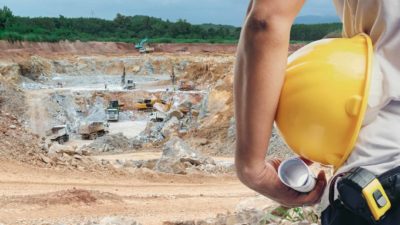Most investors in BHP Group Ltd (ASX: BHP) shares are well aware of the company's copper and iron ore operations. However, fewer people likely know that BHP also mines nickel, which is used to make lithium-ion batteries for electric vehicles (EVs).
This fact has become much more relevant in recent days, with BHP entering a memorandum of understanding (MOU) with Prime Planet Energy & Solutions (PPES) and Toyota Tsusho Corporation (TTC) (TYO: 8015).
Under the MOU, BHP will supply nickel sulphate to PPES from its new production plant in Nickel West, Western Australia.
BHP shares are trading relatively flat on Thursday. At the time of writing, the mining giant's shares are at $36.60, down 0.14%.
BHP is positioning for EV demand
Firstly, for some background, PPES was formed as a joint venture between Toyota Motor Corporation (TYO: 7203) and Panasonic (TYO: 6752). The formed entity operates as one of Japan's leading lithium-ion battery producers.
According to a press release, BHP plans to supply PPES with the nickel sulphate it requires to produce its cells. As a result, Toyota is effectively the mining company's second automotive manufacturer customer.
This follows Tesla Inc (NASDAQ: TSLA) signing a supply agreement with BHP in July — a point in time when BHP shares were trading above $45 apiece.
In addition, the trifecta of companies will collaborate to establish a more sustainable battery supply chain. For instance, end-to-end raw material traceability, ethical sourcing, and human rights reporting are elements in focus.
BHP will also explore the recycling of battery scraps and used batteries at its Nickel West facility.
Commenting on the development, BHP Nickel West asset president Jessica Farrell stated:
Demand for nickel in batteries is estimated to grow by over 500 per cent over the next decade to support increasing demand for electric vehicles. We have invested in our Nickel West facilities and power agreements so that we can now deliver some of the world's most sustainable and lowest carbon emission nickel to customers.
We are excited to work with our partners to potentially increase the use of electric vehicles at our operations and further advance our sustainability agenda.
BHP estimates that there will be 314 million EVs on the road by 2035. If that is the case, the demand for materials required in batteries is set for an explosive surge. Hence, BHP is vying to grab its share of the potential market opportunity.
BHP shares in review
It has been a wild ride for BHP shareholders over the past year. A couple of months ago, we would have been telling a completely different story about the returns provided by BHP shares. However, the swift drop in the iron ore price has left its mark on the mining giant's share price.
In the past year, the mining company has gained 2%. For comparison, the S&P/ASX 200 Index (ASX: XJO) has delivered a return of 20%.
The company is trading on a price-to-earnings (P/E) ratio of 19.13 based on the current BHP share price.








